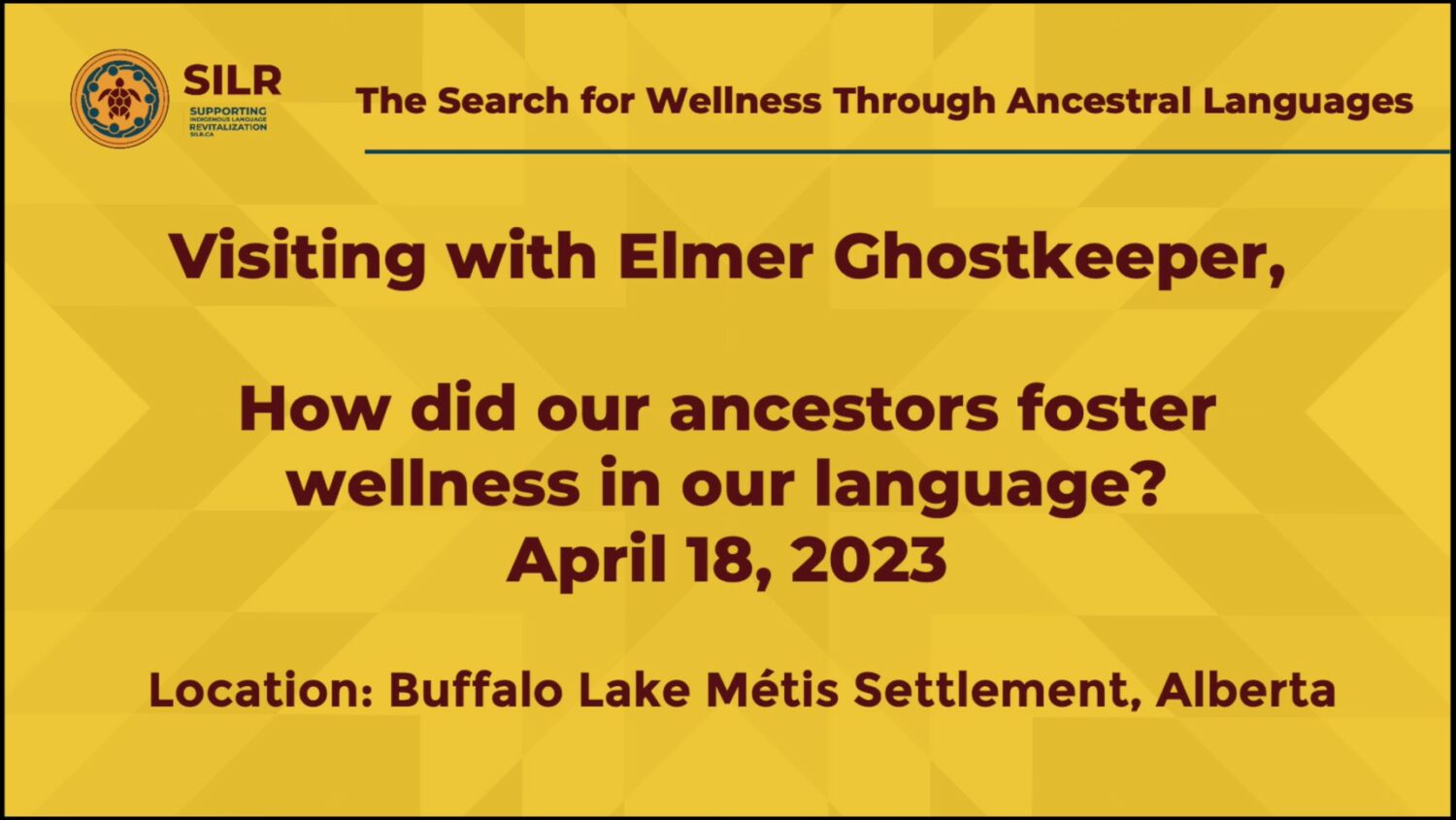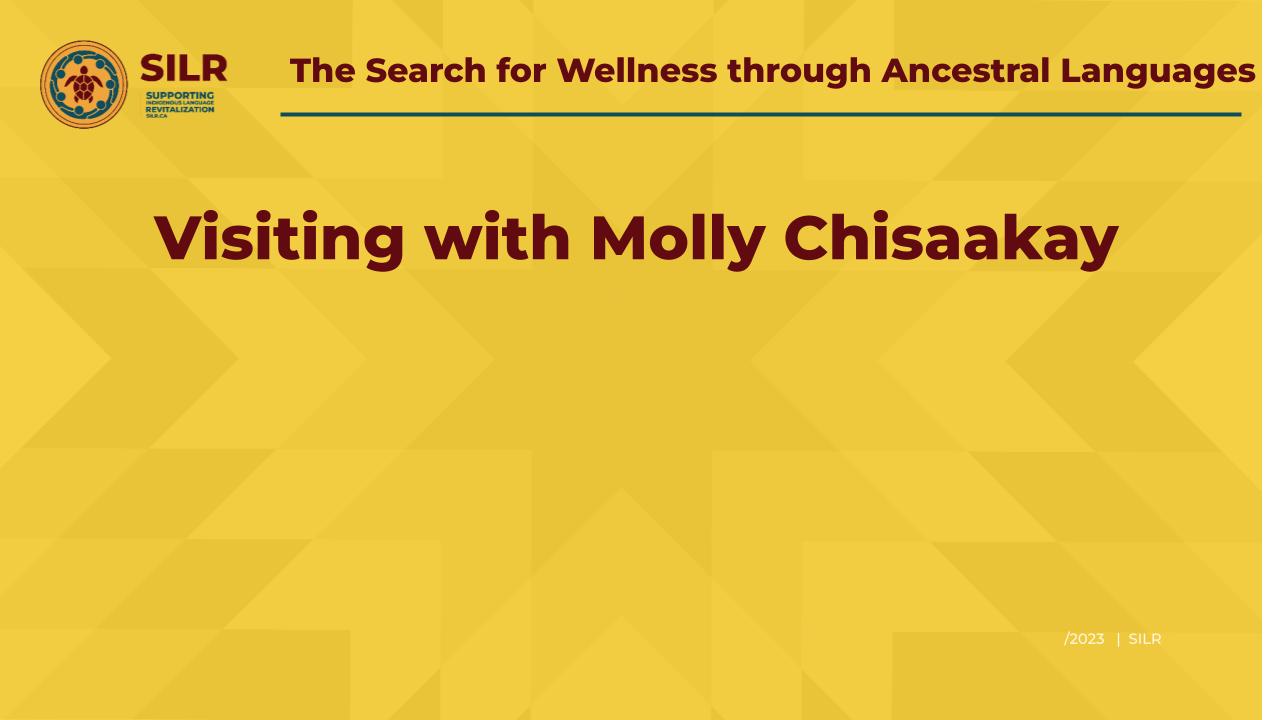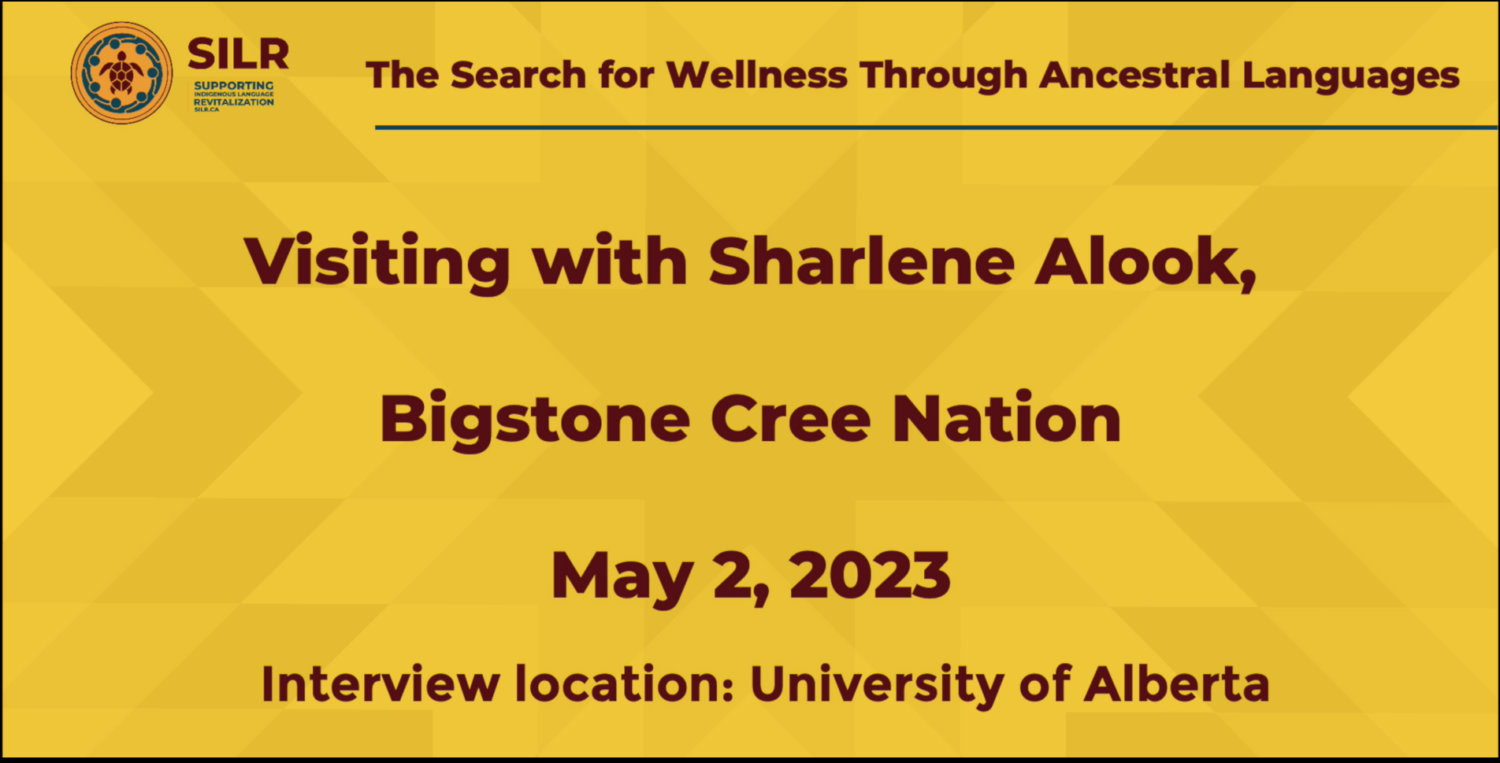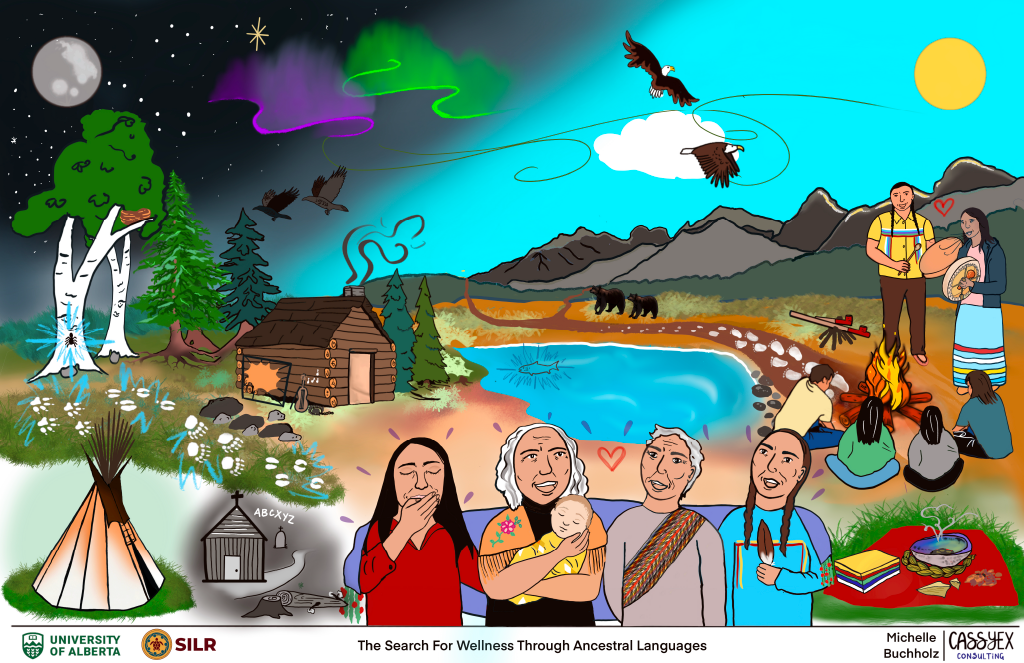The Searching team was tasked with learning about the ways in which knowing and speaking one’s Ancestral Language(s) fosters wellbeing (mind, body, spirit, and emotions).
At the beginning of our searching journey, the team was advised not to use Roman Orthography or written text. Reflecting upon this guidance, we decided to use visuals and orature throughout our searching process to document and understand what was shared during each visiting with an Ancestral Language Keeper. These practices provided a more authentic way of documenting the findings that are shared in the pictograph and findings video. In total, we had the honour of visiting with twenty-three Ancestral Language Keepers. Each of their Ancestral Languages (Nehiyawewin, Michif, Dene Tha’, Anishnaabe) are represented in the pictograph and video.
The visual presentation of the findings as a pictograph and video intentionally moves the findings away from a predefined list and instead invites each viewer on a journey of searching and reflection that is not determinative nor prescriptive. This is important because this is about a lifelong process that does not have a particular answer, path or destination.
Overall, our hope is that the pictograph, findings video, and visiting videos are shared widely and invites Indigenous youth, adults and Elders on a journey of connecting with and learning their Ancestral Language(s). By connecting with one’s Ancestral Language(s) a path is opened to a lifelong journey of learning, practicing and experiencing a good life (well-being – mind, body, spirit and emotions) that is interconnected with the land, ceremony, all our relations and a continual praxis of agency.
Please submit a request for access to the FINDINGS VIDEO. If you or your organization identify with one or more of the following you will be given access to the findings video: Ancestral Language Learner, Indigenous Organization, School with Indigenous Students, Ancestral Language Instructor.



